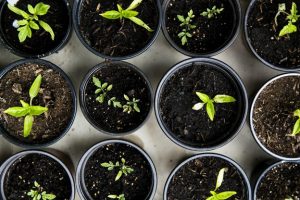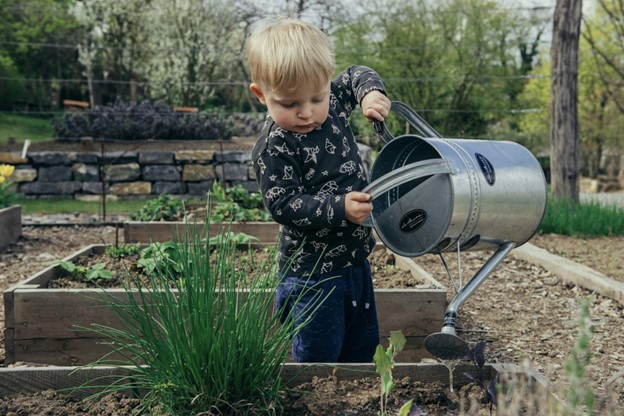Hydroponic gardening is revolutionizing the way we think about agriculture and food production. This innovative method of growing plants without soil offers a myriad of benefits that are increasingly attracting the attention of both amateur gardeners and commercial growers. With the world facing significant challenges such as climate change, soil degradation, and the need for sustainable food sources, hydroponic gardening presents a viable solution. This blog post explores the numerous advantages of hydroponic gardening, highlighting how it can contribute to a more sustainable and efficient future for agriculture.
Higher Yield and Faster Growth
One of the most compelling benefits of hydroponic gardening is the potential for higher yields and faster growth rates compared to traditional soil-based agriculture. Hydroponic systems provide plants with a nutrient-rich solution directly to their roots and, According to Pakenham Hydroponics, ensure they receive the optimal amount of nutrients at all times. This direct and efficient nutrient delivery system accelerates plant growth and can result in yields that are up to 30-50% higher than those achieved with soil gardening. Furthermore, because the growing environment can be carefully controlled, plants are less susceptible to environmental stressors such as drought or nutrient deficiencies, allowing for more consistent and reliable production.
Space Efficiency
Hydroponic gardening is particularly advantageous in terms of space efficiency. Traditional agriculture requires vast tracts of land to produce significant quantities of crops. In contrast, hydroponic systems can be set up in a variety of spaces, including urban environments, greenhouses, and even indoors. Vertical farming, a common hydroponic technique, maximizes space by stacking plants vertically, allowing growers to produce more food in less space. This is especially beneficial in urban areas where land is limited and expensive. By utilizing underutilized spaces such as rooftops, basements, and abandoned buildings, hydroponic gardening can contribute to urban sustainability and food security.
Water Conservation
Water scarcity is a pressing global issue, and traditional agriculture is a major consumer of freshwater resources. Hydroponic gardening offers a solution by significantly reducing water usage. In hydroponic systems, water is recirculated and reused, leading to water savings of up to 90% compared to conventional soil-based farming. This is because hydroponic systems deliver water directly to the plant roots, minimizing evaporation and runoff. The efficient use of water in hydroponic systems not only conserves a precious resource but also reduces the environmental impact of agriculture, making it a more sustainable choice for food production.
Reduced Use of Pesticides and Herbicides
Hydroponic gardening can drastically reduce or even eliminate the need for pesticides and herbicides. Since hydroponic systems are typically set up in controlled environments such as greenhouses or indoor facilities, plants are less exposed to pests and diseases. This controlled environment also means that weeds, which compete with crops for nutrients and water in traditional agriculture, are virtually non-existent in hydroponic systems. As a result, growers can avoid the use of harmful chemicals that are commonly used in conventional farming, leading to healthier plants and produce. This not only benefits the environment by reducing chemical runoff but also results in cleaner, safer food for consumers.
Better Control Over Growing Conditions
One of the key advantages of hydroponic gardening is the ability to control the growing environment precisely. Factors such as light, temperature, humidity, and nutrient levels can be carefully regulated to create optimal conditions for plant growth. This level of control allows growers to cultivate crops year-round, regardless of external weather conditions. Additionally, because the environment is controlled, hydroponic systems can be used to grow a wide variety of plants that might not thrive in the local soil or climate. This flexibility expands the range of crops that can be produced, contributing to greater food diversity and security.
Improved Plant Health and Quality
Hydroponic gardening often results in healthier plants and higher-quality produce. By providing plants with a balanced and readily available nutrient supply, hydroponic systems can prevent the nutrient deficiencies and imbalances that often occur in soil-based gardening. Moreover, because hydroponic plants are less exposed to pests and diseases, they are generally healthier and more vigorous. The produce grown hydroponically tends to have better flavor, texture, and nutritional value due to the controlled and optimal growing conditions. This improvement in plant health and produce quality is a significant benefit for both growers and consumers, ensuring a consistent supply of high-quality food.
Environmental Sustainability
The environmental benefits of hydroponic gardening extend beyond water conservation and reduced chemical use. Hydroponic systems often use less energy than traditional agriculture, particularly when combined with renewable energy sources such as solar or wind power. The reduced need for heavy machinery and equipment in hydroponic gardening also decreases fossil fuel consumption and greenhouse gas emissions. By minimizing land disturbance and preserving natural ecosystems, hydroponic gardening also helps protect biodiversity. These environmental advantages make hydroponic gardening a more sustainable and eco-friendly option for food production.
Economic Viability and Scalability
Hydroponic gardening is becoming increasingly economically viable and scalable. Advances in technology and increased demand for locally grown, sustainable produce have driven down the costs of hydroponic systems, making them more accessible to a wider range of growers. Additionally, the high yields and rapid growth rates associated with hydroponic gardening can lead to quicker returns on investment. The scalability of hydroponic systems, from small home setups to large commercial operations, allows growers to start small and expand as needed. This flexibility makes hydroponic gardening an attractive option for entrepreneurs and established farmers alike, contributing to the growth of a sustainable agricultural sector.
Community and Educational Benefits
Hydroponic gardening offers numerous benefits for communities and educational institutions. Community gardens and urban farms using hydroponic systems can provide fresh, healthy produce to residents, enhancing food security and promoting healthy eating habits. These gardens can also serve as educational tools, teaching people of all ages about sustainable agriculture, plant biology, and nutrition. Schools and universities can use hydroponic systems to engage students in hands-on learning experiences, fostering a deeper understanding of science, technology, engineering, and mathematics (STEM) subjects. By bringing people together and promoting knowledge sharing, hydroponic gardening can strengthen communities and inspire future generations of sustainable growers.

Hydroponic gardening represents a transformative approach to food production that offers numerous benefits for individuals, communities, and the environment. From higher yields and faster growth rates to water conservation and reduced chemical use, the advantages of hydroponic gardening are compelling. As the world faces increasing challenges related to food security, climate change, and resource management, hydroponic gardening provides a sustainable and efficient solution. By embracing this innovative method, we can contribute to a more resilient and sustainable agricultural future, ensuring we can feed a growing population while preserving our planet for future generations.

Recent Comments